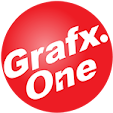World War Two ended literally with a bang. That bang was the start atomic warfare. The decision to use the atomic bomb against the Japanese has fueled controversy ever since. Overall, my opinion on the use of atomic weapons against the Japanese was justifiable given the intelligence available to the planners and decision makers, however, later intelligence would prove the bombs use were less effective than the introduction of Soviet Forces into the Pacific Theater.
World War Two was fought on the concept of total war – that is every resource available to a nation is put towards the war effort and as a direct result, everything, including the civilian labor force was considered a legitimate combat target. Unrestricted submarine warfare against merchant shipping was practiced by both sides as was unrestricted aerial bombing of cities. The cities of Germany and Japan were being turned into rubble with no regard for human life as the firestorms of Dresden and Tokyo would show.
American scientists began working on the Manhattan Project which culminated in the Trinity Test where an atomic bomb (the “Gadget”) was successfully detonated in a desert bombing range outside of Alamagordo, New Mexico (Department of Energy: Office of History & Heritage Resources n.d.) . The success of the test lead Truman to order the development of the “Fat Man” and the “Little Boy” atomic bombs as they would decrease the need for American reliance on Soviet involvement in the Pacific Theater. At the Potsdam Conference, Truman hinted to Stalin about a "new weapon of unusual destructive force." To which Stalin, having been receiving information about the American atomic program since 1941, showed little interest and merely hoped the weapon would be put to use against the Japanese (Department of Energy: Office of History & Heritage Resources n.d.) .
History shows the Soviets invaded Manchuria and the atomic bombs were dropped on Hiroshima and Nagasaki and shortly after that, the Japanese signed the surrender documents on the deck of the U.S.S Missouri. It is my belief, considering the intelligence available to President Truman regarding the Japanese resistance on Iwo Jima and Okinawa and the resultant American casualties of those battles in combination with the possibility of another 1 million casualties forced Truman’s hand on the matter.
Additionally, while I feel the atomic bombs did their part to end the war, I honestly believe the injuries, damage and destruction caused by these comparatively low yield weapons when compared the destructive power of the later hydrogen bombs introduced war planners to the destructive power of the atom and in a way contributed to the lack of their use during the Cold War.
Bibliography:
" Assistant Secretary of War John J. McCloy, "Memorandum of Conversation with General Marshall May 29, 1945 – 11:45 p.m.," Top Secret ." n.d. http://www.gwu.edu/~nsarchiv/NSAEBB/NSAEBB162/11.pdf (accessed May 9, 2010).
""Magic" – Far East Summary, War Department, Office of Assistant Chief of Staff, G-2, no. 502, 4 August 1945." n.d. "Magic" – Far East Summary, War Department, Office of Assistant Chief of Staff, G-2, no. 502, 4 August 1945 (accessed May 9, 2010).
Department of Energy: Office of History & Heritage Resources. "Potsdam and the Final Decision to Use the Bomb." The Manhattan Project: An Interactive History. n.d. http://www.cfo.doe.gov/me70/manhattan/potsdam_decision.htm (accessed May 9, 2010).
—. "The Trinity Test." The Manhattan Project: An Interactive Story. n.d. http://www.cfo.doe.gov/me70/manhattan/war_1945.htm (accessed May 9, 2010).
"General George A. Lincoln to General Hull, June 4, 1945, enclosing draft, Top Secret." n.d. http://www.gwu.edu/~nsarchiv/NSAEBB/NSAEBB162/13.pdf (accessed May 9, 2010).
GlobalSecurity.org. Battle of Okinawa. n.d. http://www.globalsecurity.org/military/facility/okinawa-battle.htm (accessed May 9, 2010).
Gypton, Jeremy. Bloody Peleliu: Unavoidable Yet Unnecessary. n.d. http://www.militaryhistoryonline.com/wwii/peleliu/bloody.aspx (accessed May 9, 2010).
History.com. Battle of Tarawa. n.d. http://www.history.com/topics/battle-of-tarawa (accessed May 9, 2010).
JCOS. ""Minutes of Meeting Held at the White House on Monday, 18 June 1945 at 1530," Top Secret." The National Security Archive. n.d. http://www.gwu.edu/~nsarchiv/NSAEBB/NSAEBB162/20.pdf (accessed May 9, 2010).
Kickman, Kennedy. About.com: World War II: Battle of Guadalcanal. n.d. http://www.militaryhistoryonline.com/wwii/peleliu/bloody.aspx (accessed May 9, 2010).
O'Brien, Cyril J. Iwo Jima Retrospective. n.d. http://www.military.com/NewContent/0,13190,NI_Iwo_Jima2,00.html (accessed May 9, 2010).

No comments:
Post a Comment